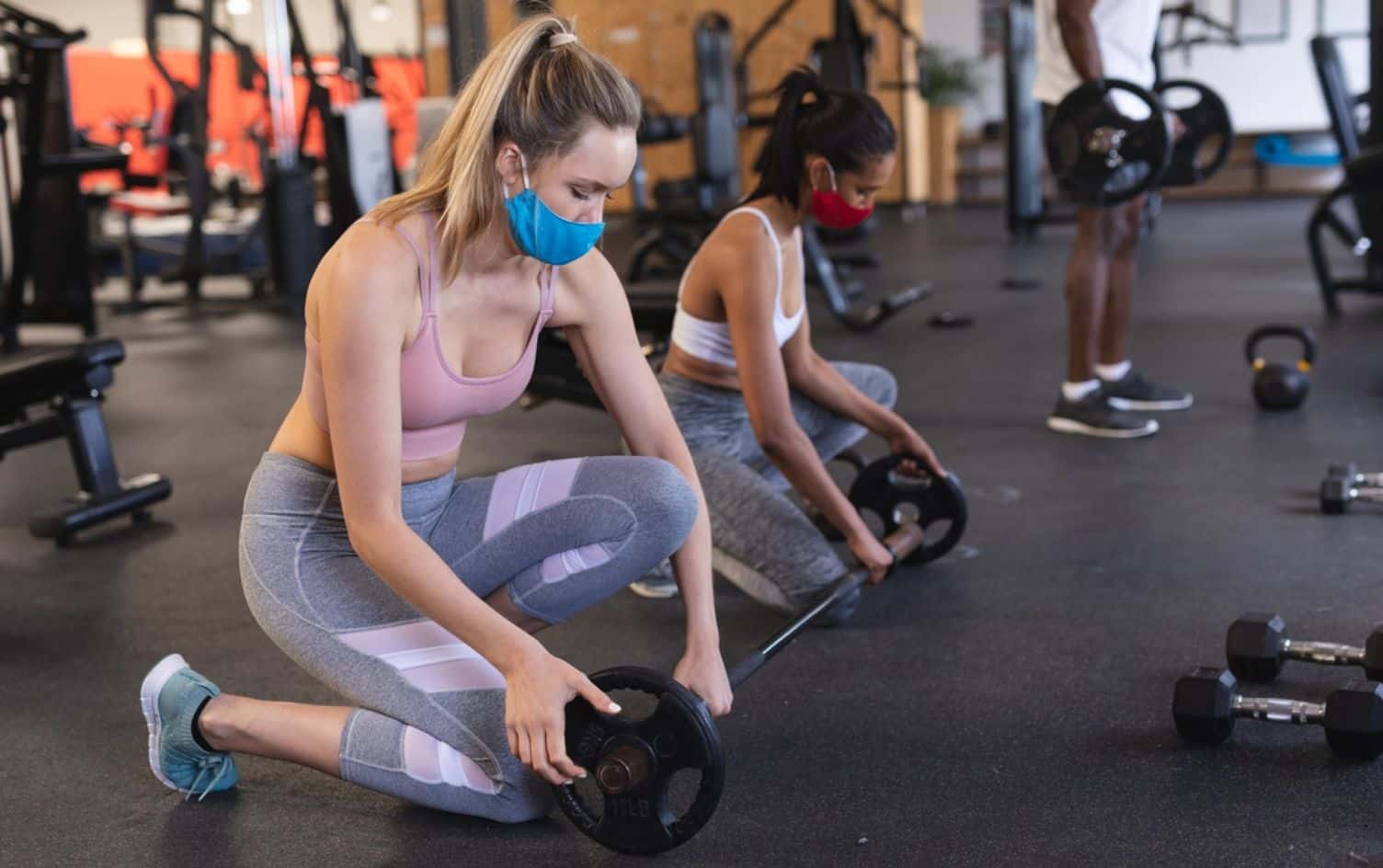With states easing stay-at-home restrictions, that means most gyms are beginning to reopen, but don’t expect to go back to the old days of packed treadmill areas, sweaty weight benches, and shoulder-to-shoulder group fitness classes. No matter where you live, you’ll likely see numerous precautions to limit the spread of coronavirus — and that’s a good thing.
“Many gym members will be hesitant to return until they feel comfortable doing so, and their fears need to be alleviated,” says Ramsey Bergeron, a Scottsdale, Arizona-based certified personal trainer. “Gyms should be proactive right now by making sure everyone — from members to trainers and front desk staff — know what’s expected.”
At the very least, gyms should follow the advice of the Centers for Disease Control, which offers guidance on reopening any kind of shared space. Many fitness facilities are also working to change class sizes, equipment setup and cleaning routines to give members the comfort it takes to come back.
First and foremost, Bergeron says, even with extensive protections in place, not everyone will feel confident about returning, and that’s OK. Most gyms were quick to put virtual training and fitness class options online when they had to close, and many plan to continue to offer this as an alternative.
Obviously, cleaning and disinfection need to be the top priority, and you should be able to tell — and often see for yourself — cleaning is much more extensive than in the past.
For example, LifeTime, which has fitness locations across the United States and Canada, has doubled its investment in deep cleaning and is using a hospital-grade disinfectant and virucide, or agents meant to kill the virus, according to Dan DeBaun, public relations specialist for the company. Cleaning stations are located throughout each club, and class participants will not share equipment during class, so it can be cleaned more effectively.
Social distancing, too, should be visible and well followed — and your gym should make it easy to do. For this, LifeTime is making every other shower available and spacing out its lockers. Classes have strict limits on participants and will be held in larger studios.
Many smaller gyms are just as dedicated to maintaining distancing, even if it means having less equipment. For example, at Minneapolis-based Fit Studio, owner Aaron Leventhal, a certified strength and conditioning specialist, sold half of his treadmills in anticipation of having to make more room after restrictions are lifted. He’s also created a new check-in procedure that allows members to remain six feet apart as they’re waiting.
In addition to making sure your gym or fitness studio is serious about putting procedures in place that focus on virus prevention, there are numerous strategies you should be doing as well, Bergeron says. Here are a couple to keep in mind:
- Bring a face mask and wear it to check-in and anywhere social distancing may be difficult to maintain.
- Bring your own towel and mat, if possible. Many gyms will no longer offer these since they require a higher level of cleaning between uses.
- Wear comfortable clothing. “This may sound silly,” says Bergeron. “The more you adjust and touch your clothing, the more you are spreading your germs everywhere.”
- Put your phone away; don’t even bring it into the gym. Your cellphone can be a superhighway for germs to get from your hands to your face, Bergeron says.
- Minimize equipment use. Of course, one of the biggest reasons for returning to the gym is for the weights, machines, treadmills, you name it, but it’s best right now to use minimal equipment and space, says Bergeron. Be sure that if you’re sharing equipment with someone else, you both clean up after yourselves.
- Check out the gym on social media. An easy way to see how seriously your gym is taking social distancing, cleaning and other priorities is to take a look at its Facebook and Instagram pages. Tons of selfies where sweaty gym buffs are squished up together? Group shots of people arm in arm, and not a hand sanitizer bottle in sight? Find another gym that’s more serious about protecting its members.
The most important step you can take is to know procedures before you go — your gym should be communicating with members about what’s expected in terms of face mask use, distancing, bathroom and shower usage, locker room protocol and other details. Some gyms, for instance, will take your temperature as you walk in and if you’re running hot, you’ll be asked to leave. Knowing details like this helps you be more prepared.
At Fit Studio, Leventhal is asking members to review an extensive safety plan before they return. It details everything from limitations on class size to health assessments of staff to the “one-way traffic flow” that’s been put in place so people are not entering and exiting right next to each other.
In general, do some research before you head back to ensure your gym truly is implementing more protection, and you know what’s happening when you’re there.
Like so much of reopening, this is still a work in progress in terms of procedures and policies, so try to be flexible if your gym has to make a change, and definitely speak up if you feel uncomfortable about the way health and safety are being handled.




